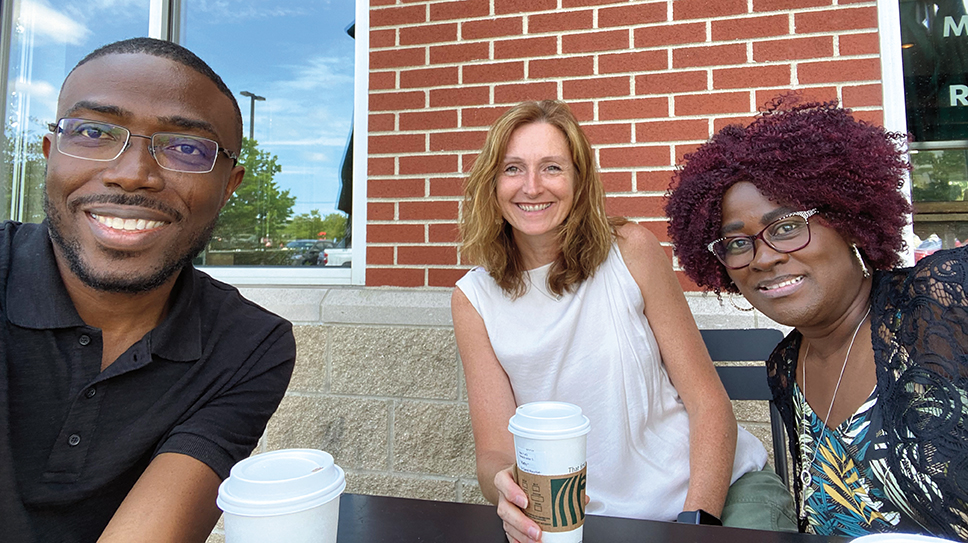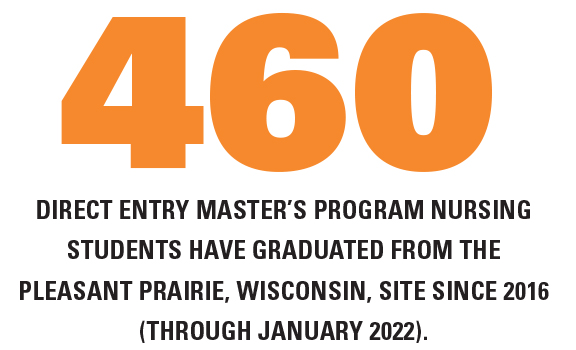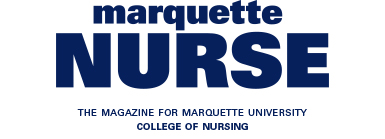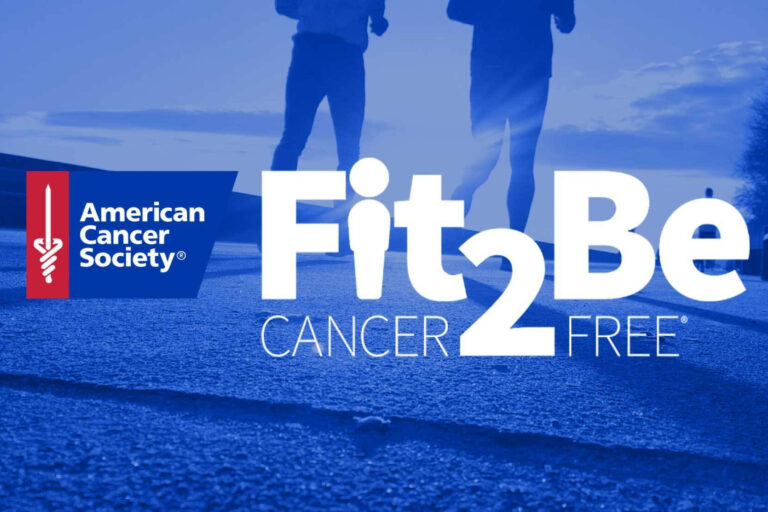Five years after it launched, the hybrid direct entry master’s program is providing new career options for students and growing enrollment.
By Hal Conick

Stella Chira dreamed of becoming a nurse since she was a little girl.
Growing up in Nigeria, she’d fondly watch her aunt go to work as a nurse in her white uniform, small white hat and big belt. Chira loved the idea of being a compassionate force in people’s lives.
When Chira came to Chicago in the ’90s, she didn’t become a nurse. Life happened, she says. She got her bachelor’s degree, got married, had kids and started working as a respiratory therapist.
Years later, while working a full-time job and serving as primary caretaker for three teenage children, Chira decided to fulfill her dream. She found Marquette’s Direct Entry Master of Science in Nursing for Non-nurses program a perfect fit.
Chira now attends the direct entry program as a hybrid student at Marquette’s satellite location in Pleasant Prairie, Wisconsin. She completes much of her work online but commutes at least once a week from Evanston, Illinois, to the student learning center and simulation lab at this locale, after her night shift.
“That’s the only way I could be doing this program,” Chira says of the hybrid option.
How the hybrid program started
The direct entry program, launched in 1999, was reorganized into its current curriculum format in 2014 with on-campus classes in Milwaukee, allowing non-nurses to get their master’s in nursing within 18 to 21 months. In 2016, the first hybrid cohort of 13 students began studies at Pleasant Prairie.
Five years later, the Pleasant Prairie location accepts 96 students, twice a year. Including the on-campus cohorts, there are 400 to 450 students total, depending on the time of year, according to Dr. Kathleen Muglia, director of the direct entry program and clinical associate professor. Program graduates need to pass nursing boards after graduating and then can start working as a registered nurse, or they can choose to advance their education further with a post-master’s certificate in a specialty, such as nurse practitioner or midwife. The program was ranked No. 38 on U.S. News & World Report‘s list of best online graduate nursing programs in 2022.

The hybrid curriculum is the same as the on-campus curriculum, but it’s presented differently. At the Pleasant Prairie site, students complete most course work asynchronously, including a variety of virtual clinical simulations and telehealth activities. Marquette nursing professors are actively engaged with students’ learning and share their unique nursing experience.
Diverse backgrounds, strong bonds
Like Chira, all direct entry students come from non-nursing backgrounds. Muglia says that the program has accepted lawyers, dancers and business managers, and she thinks that welcoming students from diverse career backgrounds enriches the nursing profession with these varied work experiences.
Kazeem “Ade” Adedamola, Grad ’21, for example, worked as an accountant until he became bored by working with money.
“I wanted to have one-on-one contact with patients,” says Adedamola, who graduated in May 2021. “I was able to do it during the pandemic, to volunteer to give vaccines to people. It was a passion — I was being called to go help the community. This program changed my life.”
Chira says that Adedamola serves as an inspiration in her quest to become a nurse. Muglia noticed that Chira and Adedamola, both originally from Nigeria, share a positive perspective on life. The two were introduced by Muglia, who says that students in the program — especially those with similar life experiences — often form strong bonds and lean on each other for support. This has been true for Chira, who says she gets a lot of encouragement from Adedamola.
“It feels good knowing that if he can do it, I can also do it,” Chira says.
Embodying the Marquette Nurse
The increased enrollment numbers at both program sites are helping the College of Nursing introduce more nurses into a shrinking workforce. The American Nursing Association reports there will be nearly a half-million registered nurses retiring by the end of 2022 and a need for 1.1 million new registered nurses to avoid a nursing shortage.
Muglia is confident the direct entry students will be well prepared to help fill this need. Nurses who graduate from this intense program very quickly progress thanks to the rigorous blend of nursing theory course work, nursing skills and simulation labs, and clinical rotations in diverse practice areas, she says.
“The many challenges and demands on nurses in today’s world are especially tough,” Muglia says. “I am so proud talking to our direct entry graduates who are amazingly resilient, excellent clinicians.”
And “resilient” may be the best word to describe a student like Chira. After ensuring her children get on the bus, she studies and completes her course work with every free moment left in her day. Twice a week, she’ll make the drive to Pleasant Prairie for labs and simulations. Once a week, she’ll drive to Libertyville, Illinois, for her clinical rotation.
“My life right now is completing this program and taking care of my family,” says Chira, who is poised to graduate this August.
Students who work as hard as Chira are the embodiment of the Marquette Nurse, Muglia says.
“Marquette Nurses are critical thinkers, courageous leaders, patient advocates and excellent clinicians, and they fight for social justice,” Muglia says. “To see our graduates doing work that we so desperately need right now, that’s our biggest success.”
When asked what it’s like to study to be a Marquette Nurse, Chira responds simply: “It’s like a dream come true.”




